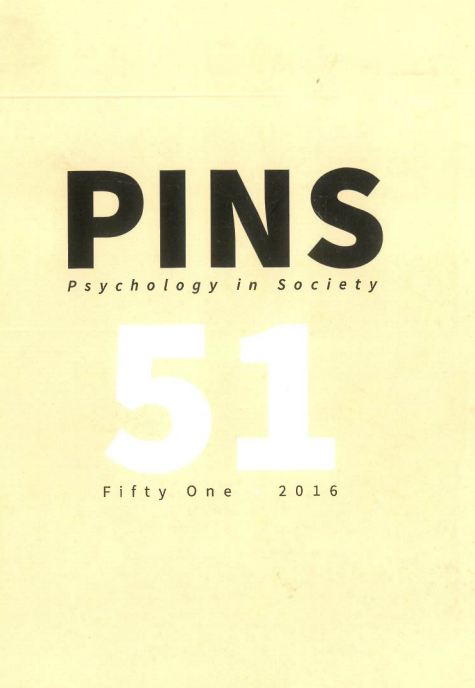Wulf Sachs, race trouble, and the will to know
DOI:
https://doi.org/10.17159/2309-8708/2016/n51a6Abstract
The subtitle indicates that Wulf Sachs’ Black Hamlet (1937) is an expose: “The Mind of an African Negro revealed by Psychoanalysis”. The book is a psychobiography of John Chavafambira, whom Sachs describes as a “witch-doctor” who travelled to South Africa from a “kraal in Southern Rhodesia”, eventually taking up residence in Johannesburg. Sachs seeks to show the universality of the human mind. Although context, culture and “civilization” shape the superficial content of beliefs, motivations and delusions, Sachs “discovered” that “the manifestations of insanity, in its form, content, origins, and causation, are identical in both natives and Europeans.” (p 11)
In this essay, I will consider what Black Hamlet reveals about the mind of a progressive white man living in South Africa in the 1930s – and, by extension, today. There can be no doubt that his work and close association with black people, including his visits to the Swartyard – an inner city black slum – and various rural kraals, must have cast Sachs as an outsider to white society at the time. Sachs was a progressive and he has been described both as a white “liberal” and as a “socialist” (Bloom, 2004).
Downloads
Downloads
Published
How to Cite
Issue
Section
License
This journal is an open access journal, and the authors' and journal should be properly acknowledged, when works are cited.
Authors may use the publishers version for teaching purposes, in books, theses, dissertations, conferences and conference papers.
A copy of the authors’ publishers version may also be hosted on the following websites:
- Non-commercial personal homepage or blog.
- Institutional webpage.
- Authors Institutional Repository.
The following notice should accompany such a posting on the website: “This is an electronic version of an article published in PINS, Volume XXX, number XXX, pages XXX–XXX”, DOI. Authors should also supply a hyperlink to the original paper or indicate where the original paper (http://www.journals.ac.za/index.php/pins) may be found.
Authors publishers version, affiliated with the Stellenbosch University will be automatically deposited in the University’s’ Institutional Repository SUNScholar.
Articles as a whole, may not be re-published with another journal.
The copyright of the article(s) lies with the author(s).
The copyright of the journal lies with PINS-psychology in Society.
The following license applies:
Attribution CC BY-NC-ND 4.0 - https://creativecommons.org/licenses/by-nc-nd/4.0/

